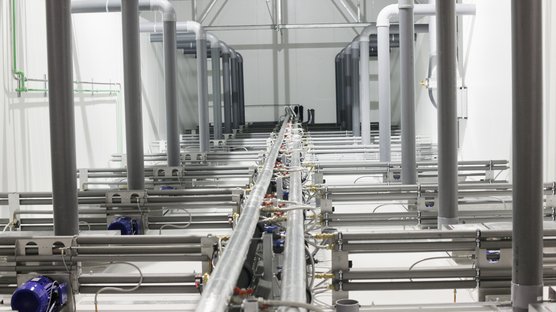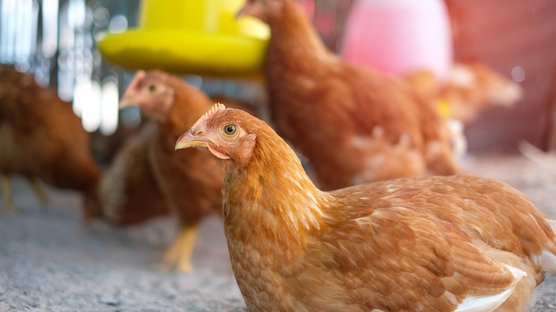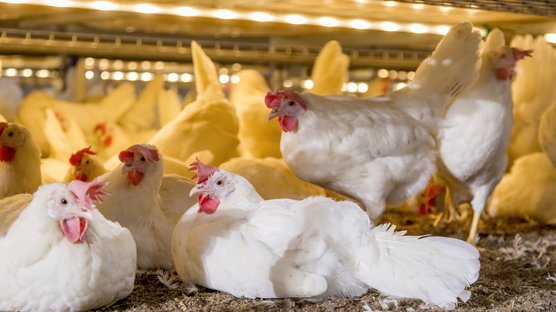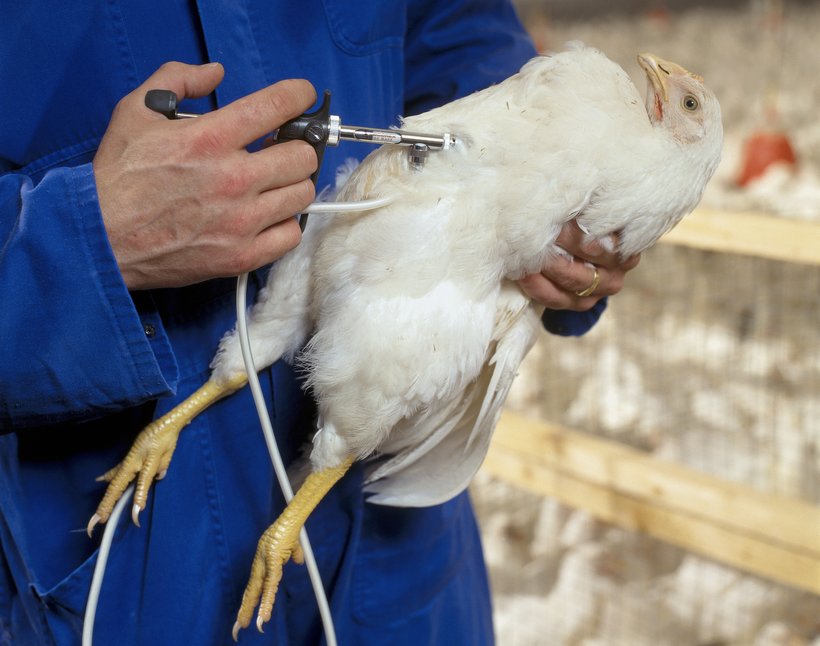
Published on Aug. 10, 2020
Vaccination Strategies
In the year 2016, almost 73.9 million metric ton of eggs were produced worldwide (source: Statista). Taken from this, the laying hen sector plays a major role in providing the world population with safe and affordable eggs. In order to meet this demand and considering the relatively high numbers of individual birds on poultry farms, strict biosecurity and management systems have been developed over the many years of poultry production.
Prevention of poultry diseases and avoiding disease outbreaks is a key priority where the health and welfare of the birds must be safeguarded. Disease causing organisms can be classified as smallest to largest: viruses, mycoplasmas, bacteria, fungi, protozoa and parasites. All these organisms, except for viruses, are susceptible to chemotherapy. Therefore vaccination, as part of the biosecurity program, can be the next line of defense in protecting your bird’s health against viral diseases. Besides, these vaccinations can also play a key role in protecting consumer health, like in the case of controlling Salmonella via vaccination. Vaccinating your birds can also help to support the responsible use of antibiotics by either preventing the disease or reducing the clinical signs so that fewer medical treatments are needed. Although antibiotics are only useful in the cure of bacterial infections, there are many cases where your birds first succumb to viral infection, which leads to a subsequent secondary bacterial infection that may need treatment with antibiotics (WHO).
When we extended our breeding programs to 100 weeks of age, we raised the question: “Will the vaccinations, administered during the early lifetime of our birds, remain effective when the hens become older?”
We know that when birds become older, the exposure to certain diseases is of greater risk, as both immunity and vaccinal protection wanes with age. But, we do not know exactly for how long immunity truly remains after vaccination. Most of the manufacturers and suppliers of poultry vaccines do not give the guarantee of a lifelong protection after successful vaccination. This information can be found on the product details of the package insert. Check with your national supplier as package inserts might differ per country. The truth is that there is a lack of research from industry and research institutes. It is known that vaccine manufacturing companies do very limited research on prolonged protection of their vaccines in laying hens. We are in the process of actively working with these organizations and urging them to conduct more research on this topic.
Vaccination is no substitute for effective management. One of the most effective protective actions for your birds is the prevention of pathogens infecting your birds in the first place. A greater focus on proper general flock management, including intensive biosecurity and sanitation programs can be very effective, but will also not guarantee a disease-free flock. Vaccination can be effective in reducing clinical disease but be aware that exposed birds may still get infected and may "shed” pathogens (they are carriers). In general, vaccination before the actual infection occurs in a flock is the best means of protection.
During the rearing period you can make or break your birds. If you want your birds to become long-living, top performers, you must make sure that they have had the proper preparations from day 1 onwards. Vaccinations at the hatchery and during the rearing period is also more efficient, more effective, and most vaccines are recommended to be administered during early life. Please carefully consult the product labels and contact your local veterinarians for assistance. Before going into detail on vaccinating your birds, a brief description of how vaccines function:
Vaccines work by stimulating an immune response in a bird without causing the disease itself, e.g. it mimics natural infection. If a healthy bird is vaccinated, the birds’ own immune system will respond to the vaccine by activating an army of cells designed to attack and destroy the invaders before they cause damage to the bird. After the attack, several specialized immune system cells remain, called memory cells. These memory cells will remember the infectious agent to which the bird is vaccinated. If later life an encounter with the infectious agent takes place, the birds’ immune system is capable of a quick “detect and destroy” of the infectious agent, resulting in protection from the disease and therefore preserving the productive health of your flock. Cellular immunity is one part of the immune response. Humoral immunity (antibodies) make up the other part
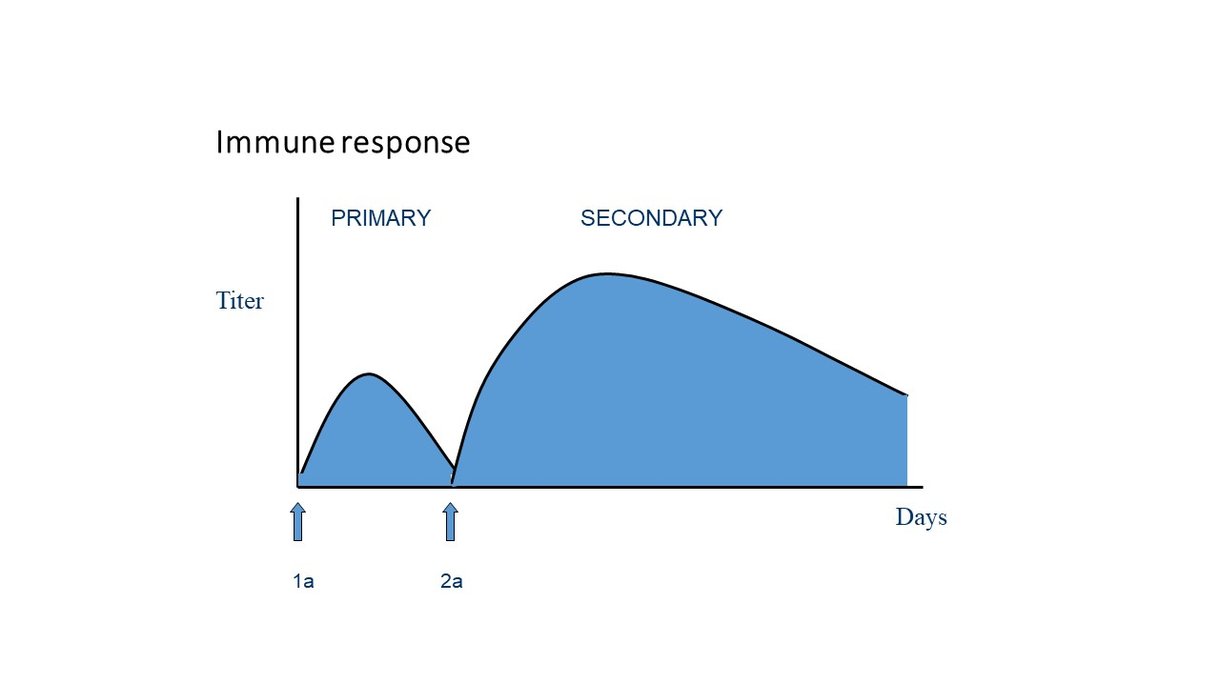
The main types of available vaccines are categorized in the following classes:
- Modified-live (attenuated): a vaccine that contains an intact but weakened pathogen which stimulates an immune response but does not cause the clinical disease itself.
- Inactivated (killed): a vaccine that contains a completely inactivated pathogen which is no longer infectious. These inactivated vaccines often contain an adjuvant, which is a compound added to help improve the protective immune response.
- Recombinant: a vaccine that is produced by making use of a live virus or bacteria as a vector to transport the gene coding for the protective antigen of a second infectious agent for which immunity is desired. This will stimulate an immune response when the bird is vaccinated. This vaccine is also called a vector vaccine.
- Toxoid: a vaccine that is based on the inactivated toxins produced by pathogens. These vaccines stimulate the birds’ immunity and protect her against these toxins.
- Subunit vaccine: Instead of the entire microbe, subunit vaccines include only the antigens that best stimulate the immune system. Because subunit vaccines contain only the essential antigens and not all the other molecules that make up the microbe, the chances of adverse reactions to the vaccine are lower.
- Genomic Vaccine: the most recent innovation in vaccines, these vaccines show great promise as they take immunization to the next technological level. Based on the principle that when the genes for a microbe’s antigens are introduced into the body, some cells will take up that DNA. The DNA then instructs those cells to make the antigen molecules. This induces the cells to secrete the antigens and to display them on their surfaces, e.g. the body’s own cells become the vaccine making factories.
In summary, poultry vaccines are biological products that induce an immune response to the specific disease-causing agents. When vaccinated, the bird’s immune system will react via an attack response to a specific virus, thereby producing antibodies and creating also the memory cells. It is known that the more a bird is exposed to the same virus, the greater the attack response and resulting protection will be. This is the main reason that most of the pullet flocks are vaccinated multiple times against the same disease.
Vaccinating your birds can be stressful, not only because of the handling of the birds when administering the vaccine to the bird via the wing web, the breast muscles or the eyes. The stimulated immune response caused by the vaccine, irrespective of the administering method, also causes a stress response which could negatively affect the bird’s appetite and therefore growth. A well-balanced design of your vaccination program is therefore essential. Please consult your local veterinarian to develop your vaccination program.
Certain diseases are too widespread or too difficult to eradicate and require a routine vaccination program. As the exact vaccination program depends on many factors (such as disease exposure, available vaccines) no one single program can be recommended by us for all worldwide locations and situations. In general, we advise you to vaccinate your flock against Marek’s Disease, Infectious Bronchitis (IBV), Gumboro disease (IBDV), Newcastle Disease and Avian Encephalomyelitis. As stated before, please consult your local veterinarians to determine the optimal vaccination program for your own situation. Vaccinations can be thought of as a sort of insurance, there is a price to be paid for the protection against a potential virus. Costs include the price of the time spent designing the vaccination program, the vaccines and the cost of labour to vaccinate your flock. Vaccines are not harmless. Post vaccination reactions can be part of the costs involved. The decision to vaccinate should also be based on the risk of infection for the area that you are in: if the risk for a specific disease is low, it might not make sense to vaccinate against it as costs of the vaccination may outweigh the benefits of being vaccinated. To ensure success, your flock’s vaccination program should be adapted to meet the needs of the area as local disease challenge conditions vary per area.
We recommend the following when administering vaccines:
- Always follow the instructions of the vaccine manufacturers when storing, handling and administering the vaccines
- Keep a record of the vaccination program
- Vitamins can be administered a day before vaccination and three days after to minimize stress, but never mix drinking water vaccinations and vitamins
- Only vaccinate healthy birds, isolate sick birds from your flock
- In the case of ongoing antibiotic flock treatment, consult your veterinarian to decide whether to withdraw the antibiotic treatment prior to vaccination
- Make sure the crew is trained in proper vaccine administration
- For vaccines administered via the drinking water, make sure the drinking system is clean and make sure you follow the minimal required drinking time as stated by the vaccine manufacturer. Discard the drinking water afterwards, wash the drinkers and provide fresh water for your birds
- Live vaccines administered via the drinking water can be destroyed by water sanitizers.
- Make sure that the vaccines get properly distributed over the entire poultry house when administered via the water or spraying
- Monitor the result of the vaccinations (vaccine take, profiling)
In conclusion, vaccines that have been administered correctly, with the appropriate antigen content and at the right timing will not always guarantee the full protection against a field disease challenge. Many other variables must be considered, as well as routinely evaluations. Vaccinations can be useful in minimizing the economic impacts of a certain disease rather than total prevention in your flocks. A well-designed vaccination program is key, but it will only be effective when combined with proper management, good nutrition and a well followed biosecurity program. The combination of these aspects will decrease the disease pressure significantly and it will therefore increase the likelihood that your flock will perform to its genetic potential, also when keeping them longer.
References
Statista, 29-11-2018, https://www.statista.com/statistics/263972/egg-production-worldwide-since-1990/
WHO, 29-11-2018, https://www.who.int/features/qa/vaccination-antibiotic-resistance/en/
Butcher, G.D. and Yegani, M. 2009. Investigating Vaccination Failure in Poultry Flocks, The Poultry Site http://www.thepoultrysite.com/articles/1301/investigating-vaccination-failure-in-poultry-flocks/

